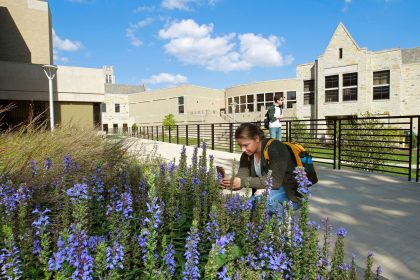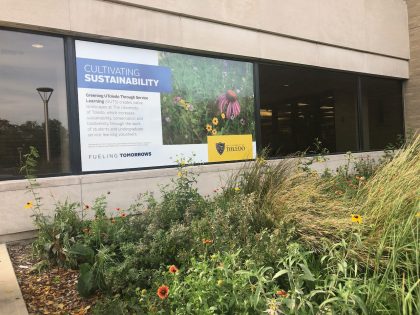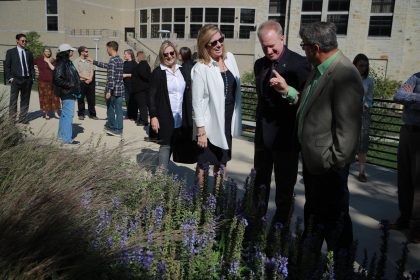Libraries and Sustainability: Beau Case, University of Toledo
This is the third blog in a series in which we ask libraries around the world about their sustainability policies and experiences. This is a subject of significant relevance here at Cambridge University Press, as we work towards our own sustainability targets. Read the previous posts from Australian National University here and UiT, The Arctic University of Norway here.
Tell us a little about your institution
The University of Toledo (UToledo, Ohio, USA) is a comprehensive research university with an enrolment of 20,000 students across fourteen colleges, including Arts, Humanities, Social Sciences, Engineering, Law, and Medicine.

Does UToledo have an environmental / sustainability policy?
UToledo has a policy covering sustainable education and research, waste management, energy conservation, water, biodiversity conservation, travel, procurement and green building design.
Among UToledo’s areas of research excellence are solar energy, water quality, and sustainable technologies. The City of Toledo is situated on Lake Erie, one of the Great Lakes, which, combined, represent 21% of the Earth’s fresh water by volume. UToledo facilities include the Lake Erie Center, which focuses on mitigating the effects of agricultural runoff, algal blooms and invasive species.
Is there a special role for the Library in the stance taken by your university?
Our libraries have long supported environmental issues. We have been prominent in hosting recycling drives, such as the one run by Carlson Library, the self-appointed paper capital of the University of Toledo, to celebrate Earth Day.
One of the purposes of this initiative was to make those using recycle bins aware that often their contents cannot be recycled owing to contamination with trash or non-recyclable products. The library campaign was devised to ease consciences and help students to recycle their paper products properly. Each person who contributed truly recyclable material on two specified dates also had a chance to enter a zero-waste giveaway raffle. Raffle products included environmentally-friendly prizes, such as reusable coffee cup filters, beeswax wraps, reusable grocery backs, a KeepCup, a FinalStraw, etc. (read more here.)

The Library has also hosted events that raise environmental issues (read more here) and worked with student government to ensure certified sustainable paper is used in our printers; we have installed LED lighting throughout our facilities; and we have used student opt-in “green” fees to upgrade restrooms with efficient air dryers.
We also host an experiential learning program, and by this means have expanded the curriculum from taking place in the traditional classroom to migrating also to the libraries. While this program began with the Arts faculties, most recently we have sponsored a service learning project in which Environmental Sciences undergraduate students created a sustainable native prairie around the library (see photo).
As our library is on the banks of the Ottawa River, runoff from our landscaping used to enter the river and empty into Lake Erie, our city’s source of drinking water. We now have natural, sustainable landscaping, fed by the sun and soil, and watered with rain.
Please describe the role of the Library as curator
Our special collections focus on the history and culture of our region. We host historical municipal archives and active corporate archives. We also are growing our special collections on disability rights which are integrated into campus research and teaching. We rely on the community to help us build these collections, and we emphasize our vital role in preservation, digitization, and access.
The library is also responsible for campus records management as well as hosting a digital institutional repository. We use our services and platforms to capture the intellectual achievements of our faculty and students, including publications on the environment and sustainability and patents for technologies in support of sustainability.
About Beau Case
As well as being the Dean of University Libraries at UToledo, Beau Case also serves as the Director of the University of Toledo Press. He was appointed Dean of the Libraries three years ago.
Prior to that, he worked at the University of Michigan. During his sixteen years at Michigan he served as Head of the Arts and Humanities collections at the University of Michigan Library and as field librarian for Classical Studies.
He is a passionate advocate of the “living” library.

He says: “Modern libraries are no longer just a vault of books and reference materials. They are academic and social spaces where students want to come and be inspired to learn. Librarians continue to provide students with the resources and environment they need to succeed, and we are excited to engage our students in discovery.”
In 2016 he became a founder member of the Cambridge University Press North American Librarian Advisory Board [NALAB]; and in 2019 he accepted the invitation also to become a member of Cambridge’s Global Librarian Advisory Board.





